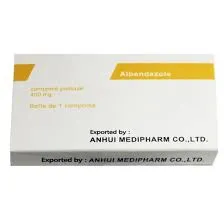- Afrikaans
- Albanian
- Amharic
- Arabic
- Armenian
- Azerbaijani
- Basque
- Belarusian
- Bengali
- Bosnian
- Bulgarian
- Catalan
- Cebuano
- Corsican
- Croatian
- Czech
- Danish
- Dutch
- English
- Esperanto
- Estonian
- Finnish
- French
- Frisian
- Galician
- Georgian
- German
- Greek
- Gujarati
- Haitian Creole
- hausa
- hawaiian
- Hebrew
- Hindi
- Miao
- Hungarian
- Icelandic
- igbo
- Indonesian
- irish
- Italian
- Japanese
- Javanese
- Kannada
- kazakh
- Khmer
- Rwandese
- Korean
- Kurdish
- Kyrgyz
- Lao
- Latin
- Latvian
- Lithuanian
- Luxembourgish
- Macedonian
- Malgashi
- Malay
- Malayalam
- Maltese
- Maori
- Marathi
- Mongolian
- Myanmar
- Nepali
- Norwegian
- Norwegian
- Occitan
- Pashto
- Persian
- Polish
- Portuguese
- Punjabi
- Romanian
- Russian
- Samoan
- Scottish Gaelic
- Serbian
- Sesotho
- Shona
- Sindhi
- Sinhala
- Slovak
- Slovenian
- Somali
- Spanish
- Sundanese
- Swahili
- Swedish
- Tagalog
- Tajik
- Tamil
- Tatar
- Telugu
- Thai
- Turkish
- Turkmen
- Ukrainian
- Urdu
- Uighur
- Uzbek
- Vietnamese
- Welsh
- Bantu
- Yiddish
- Yoruba
- Zulu
Nov . 24, 2024 16:34 Back to list
Uses and Benefits of Albendazole Suspension 2g 100ml for Treatment
Albendazole Suspension Uses and Benefits
Albendazole is a broad-spectrum anthelmintic (anti-worm) medication that is commonly used to treat a variety of parasitic infections. The suspension form, specifically Albendazole Suspension 2g in a 100ml bottle, is particularly beneficial for patients who may have difficulty swallowing tablets or capsules. This article aims to explore the uses, dosage, and potential side effects of Albendazole suspension.
What is Albendazole?
Albendazole belongs to a class of drugs known as benzimidazoles. It works by inhibiting the growth of parasites, including those that cause common infections like giardiasis, ascariasis, and hookworm. The medication disrupts the metabolism of the parasites by binding to their beta-tubulin, thereby preventing the polymerization of tubulin into microtubules. This leads to cell death and ultimately helps to eliminate the infection from the host's body.
Indications for Use
Albendazole suspension is indicated for a variety of parasitic infections
1. Intestinal Nematodes It is effective in treating infections caused by roundworms, hookworms, and whipworms, common in both adults and children, especially in tropical and subtropical regions.
3. Giardiasis This protozoan infection, caused by Giardia lamblia, can lead to significant gastrointestinal distress. Albendazole can be part of the treatment regimen.
4. Hydatid Disease Albendazole is used in conjunction with surgical procedures for patients with hydatid cysts, particularly in the liver, lungs, or other organs.
albendazol suspension 2g 100ml para que sirve

Dosage and Administration
The dosage of Albendazole suspension varies based on the age of the patient and the type of infection being treated. For adults and children over two years, the typical dose for ascariasis or other intestinal helminth infections is often around 400 mg as a single dose. For giardiasis, the treatment might last for several days, depending on the physician's recommendation. It's essential to follow medical advice closely to ensure effective treatment and minimize the risk of complications.
Albendazole can be taken with or without food; however, taking it with a fatty meal can enhance absorption and efficacy. For children or those who have difficulty swallowing pills, the suspension form offers a practical alternative as it can be easily ingested straight from the measuring cup.
Side Effects
As with any medication, Albendazole suspension may come with side effects. The most common side effects include
- Nausea and vomiting - Abdominal pain - Diarrhea - Headaches
More serious side effects can occur but are rare, including liver function abnormalities, blood disorders, and severe allergic reactions. Patients should be monitored regularly, particularly if they are on prolonged treatment courses. It’s crucial to inform the healthcare provider about any pre-existing liver issues or concurrent medications that may interact adversely.
Conclusion
Albendazole suspension 2g/100ml is a valuable therapeutic option for treating a range of parasitic infections. Its broad-spectrum activity, combined with its easy-to-administer suspension form, makes it an effective choice for patients of all ages, especially children who may struggle with traditional tablets. With its proven efficacy and relative safety when used as directed, Albendazole remains an essential tool in the fight against parasitic diseases. Always consult healthcare professionals for accurate diagnosis and appropriate treatment options tailored to individual patient needs. Through understanding and proper use of Albendazole, patients can significantly improve their health outcomes and quality of life.
-
Guide to Oxytetracycline Injection
NewsMar.27,2025
-
Guide to Colistin Sulphate
NewsMar.27,2025
-
Gentamicin Sulfate: Uses, Price, And Key Information
NewsMar.27,2025
-
Enrofloxacin Injection: Uses, Price, And Supplier Information
NewsMar.27,2025
-
Dexamethasone Sodium Phosphate Injection: Uses, Price, And Key Information
NewsMar.27,2025
-
Albendazole Tablet: Uses, Dosage, Cost, And Key Information
NewsMar.27,2025













